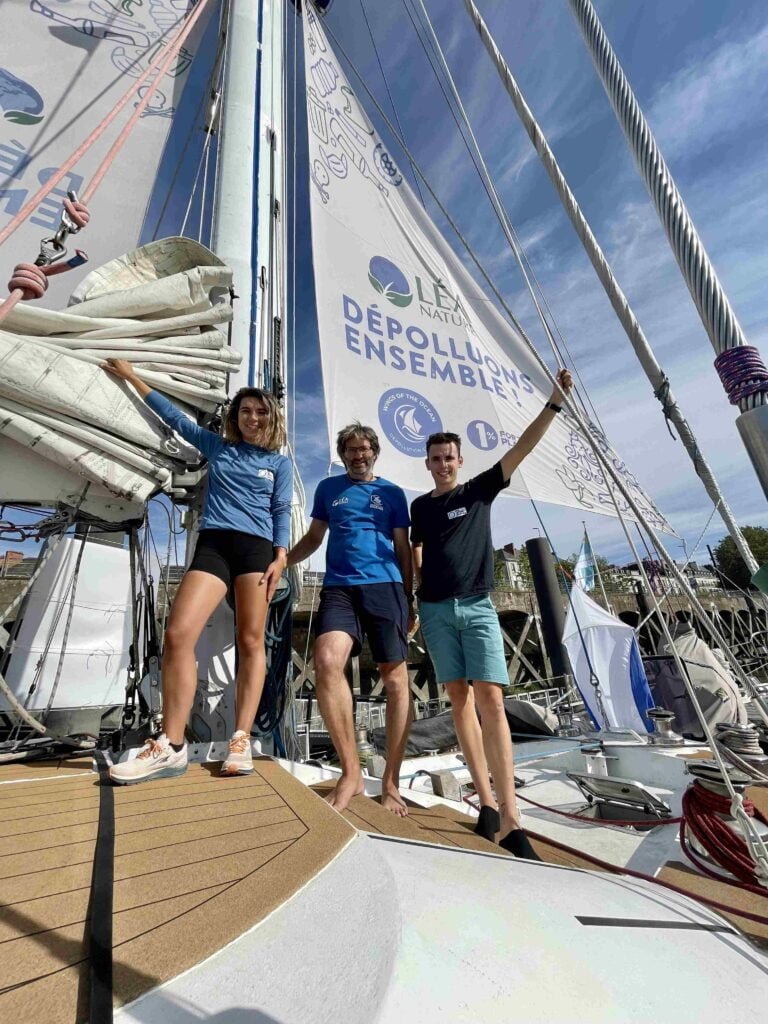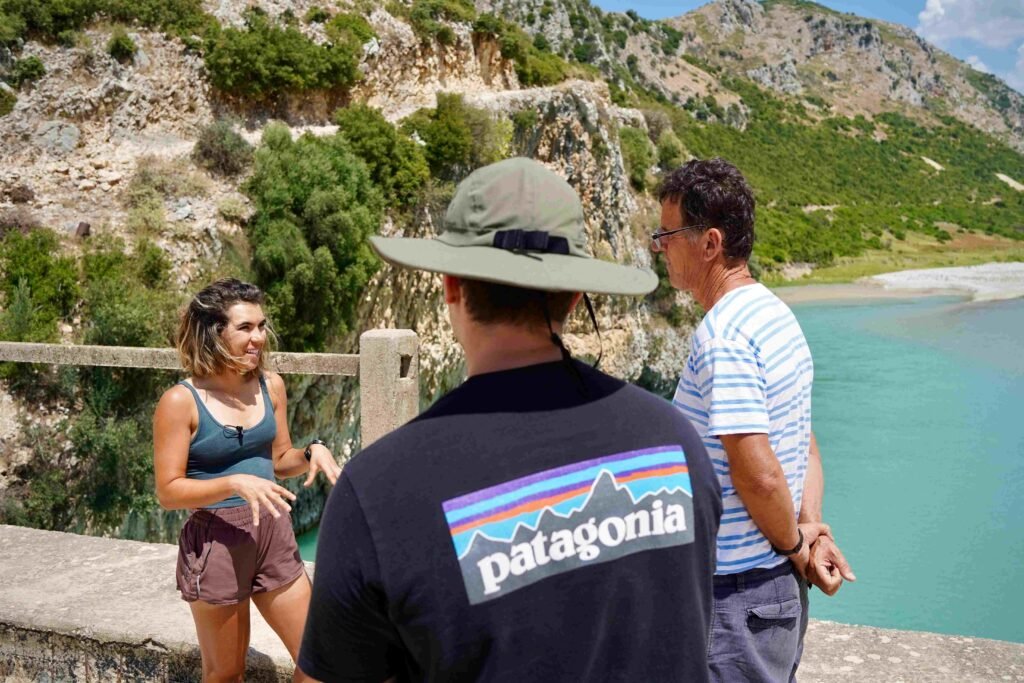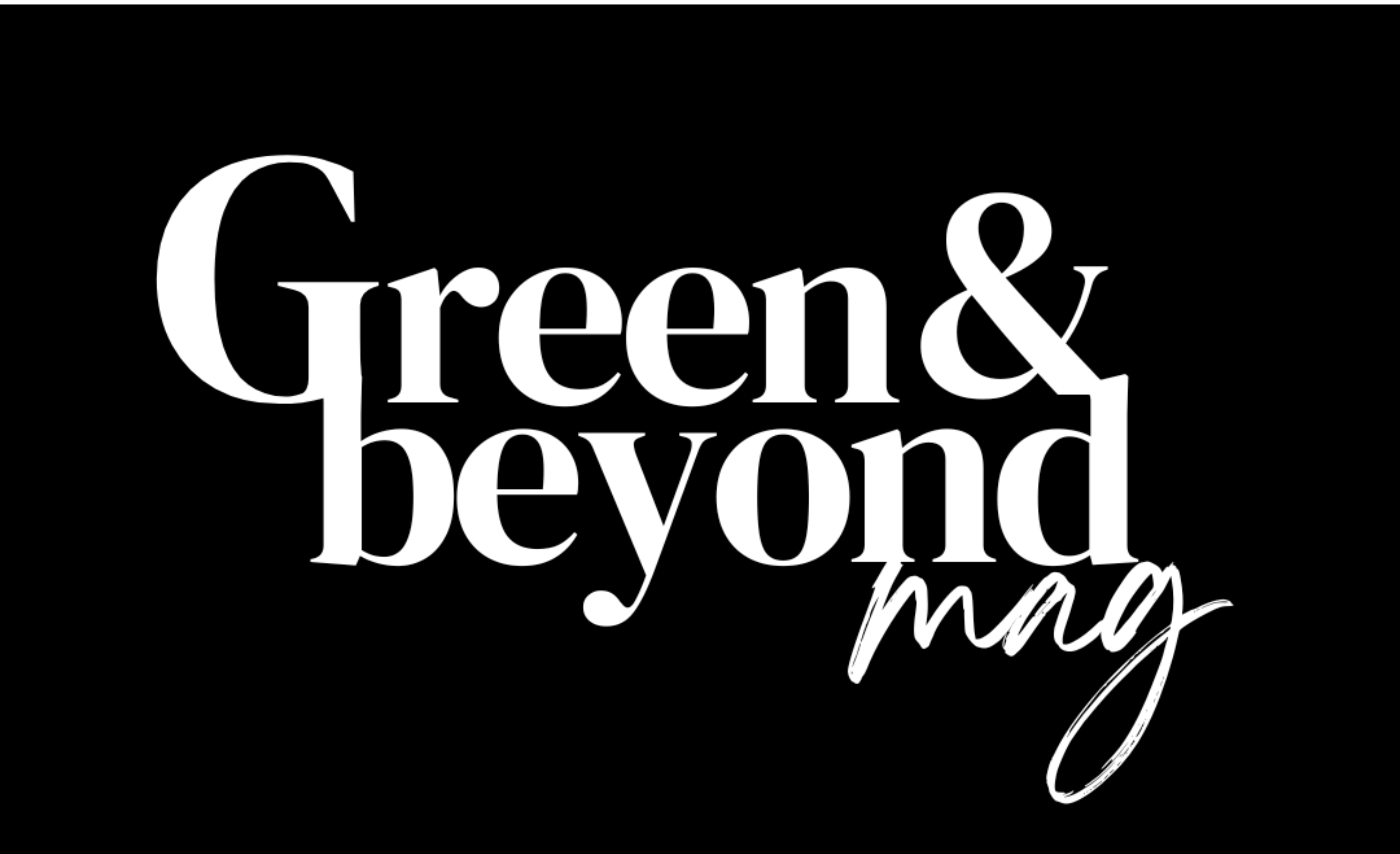
Redefining Travel: The Green Journey on a Quest for Climate Solutions
Forget the typical tourist itinerary – imagine a journey where every step, pedal stroke, and salty sea breeze is a deliberate act of environmental love. That’s the reality for Thomas Polo and Megan Claire Routbort, the co-founders of The Green Journey. This climate storytelling nonprofit isn’t about ticking off landmarks or racking up frequent flyer miles. Instead, they’re on a multi-year odyssey across the globe, using their platform to amplify the voices of everyday heroes tackling the climate crisis head-on.
Their mode of transport? Think bikes, trains, even a sailboat across the Atlantic. It’s a testament to their commitment to “reduce, respect, restore,” the guiding principles that fuel The Green Journey. Through in-depth, immersive storytelling, they paint a vibrant picture of a world buzzing with innovation and resilience. Forget the doomscrolling narratives; Polo and Routbort are here to inject a healthy dose of “earned hope” – the kind that blossoms from witnessing real action on the ground. Buckle up, because this interview dives deep into the remarkable world of The Green Journey, where every story shared is a call to action for a more sustainable future.
Could you please tell us about the story behind The Green Journey and what the platform aims to achieve?

Megan: The Green Journey is a 501(c)(3) organization focused on using exploration as a tool to tackle climate change. We have a theory that getting people excited about low-carbon, slow travel can be an entry into talking about sustainability, and then working on it in their own communities to create change.

Polo: The idea came from our own experience working in sustainability. We started our climate careers in office jobs (we actually met on Zoom!) but we found that there was more to the story of how to create a livable future than just corporate action and climate tech innovation. The puzzle is big and cuts across disciplines; solutions literally span the entire globe. So in May 2023, we embarked on a climate-positive world tour to amplify and share the messages of climate and nature heroes from all continents.

How do you define a “climate-positive world tour”?

Megan: Our main goal with climate-positive travel is to leave each place we go better than we found it. This can take many different forms; sometimes, it looks like sharing the story of an NGO that’s rewilding an old sand quarry or peat mine. Other times, it looks like participating in a climate protest, like the Global March to End Fossil Fuels or Fridays for Future. Sometimes, it just means doing a spontaneous beach cleanup, or talking to someone we’re hitchhiking with about climate action in their area.

Polo: The other critical piece is reducing our own carbon footprint as we travel; we use low-carbon forms of transport, eat low on the food chain, and live a very minimalist lifestyle — I can fit my entire life in a 50-liter backpack!

You’ve traveled across continents by bike, sailboat, and public transportation. Can you share some of the logistical challenges and unexpected joys of slow, low-carbon travel?

Polo: Well, it’s definitely not the fastest way to travel. For example, we thought it would take us two months to sail from Europe to North America, and it ended up taking us almost five! So we had to be very flexible and patient.

Megan: But that type of unexpected delay is also what makes slow travel kind of beautiful. Along the way, we connected with so many places and people, from the Balearic Islands to the Bahamas, and encountered stories to share with our audience that we never would have reached if we were traveling by plane or by car.


Polo: I was feeling pretty down about the climate crisis before we set off on the road, but with each day I spend on expeditions at The Green Journey, my hope is renewed. There are so many incredible people making change in their corners of the world; if we can do our part by bringing these stories to a global audience, we can advocate for and inspire systemic change.
From community-owned wind power to nature regeneration projects, your journey has encountered diverse solutions. What surprised you most about the variety of climate action happening globally?

Megan: It’s not just young people who are acting on climate. Yes, there’s a lot of media attention focused on activists like Greta Thunberg, but for every member of Gen Z that we’ve met working on climate, there’s also a hero who’s a millennial, a Gen X, or a Boomer. We even met with eighty-year-olds in Kutë, Albania, who’d used a civil disobedience campaign to protest the damming of the Vjosa River. Their activism showed us it’s never too late to get involved in climate action.

Polo: One thing that surprised me is the variety of approaches. We’re evolving from a situation where climate is the realm of scientists and weathermen. We see people tackling the challenge across disciplines, showing that the climate movement is now truly a cultural movement rather than just a scientific one.
In what ways do you leverage your platform to advocate for a better climate future and inspire others to take action?

Polo: Our goal with The Green Journey is to share stories of real action and radical hope. We spent most of our time, energy, and content on finding and profiling climate solutions, preferably the ones that aren’t necessarily getting the attention they deserve. All around the world, there are so many people who are making waves to build more sustainable communities, but it might not even be their day job. We focus on everyday climate heroes in order to show our audience that you don’t have to be a celebrity or an influencer to make a difference.

How do you balance raising awareness about the climate crisis with promoting hope and optimism through your storytelling?

Megan: I think the idea that people aren’t aware of the climate crisis is a bit of a distraction. National surveys from Yale Climate Communications tell us that 72% of Americans believe global warming is happening; in countries like Hungary, Portugal, and Costa Rica, that number is higher than 90%. What we respond to is the shift from climate denial to climate doomism, a growing school of thought that basically tells us we’re screwed and it’s too late to act. Of course, that’s not true. We focus on fighting back against that narrative, showing that there’s still time to change, and that actually, we have everything to gain as a society from making those changes.

Polo: Now is the time to focus on getting things done. We’re not naive; we know the situation is dire, but the world needs more examples of people working to save cultivated biodiversity or getting involved by running for office.

Megan: The idea is to promote ‘earned hope’ —
the kind that comes from action.
The Green Journey was recognized as Future Climate Leaders at Aspen Ideas: Climate Summit. Can you tell us more about your experience at Aspen Ideas Climate as Future Climate Leaders and the key takeaways from the event?

Polo: After almost ten months on the road, it was incredible to arrive in Miami Beach for the Aspen Ideas: Climate summit, where I joined 100+ Future Leaders from all over the world and all across disciplines to discuss the impact each one of us is making on the climate movement, and how to develop our work and take it to the next level. My biggest takeaway definitely came from witnessing the diversity of the cohort itself; whether you’re an artist or a scientist, French or Bahamian or American, there’s a place for you to make an impact.
What practical tips can you offer Green & Beyond Mag readers who want to travel more sustainably and reduce their environmental footprint?

Megan: It doesn’t have to be a far-flung adventure, but plan at least one trip a year that doesn’t involve flying. Ride your bicycle, lace up your hiking shoes, or hop onboard your national rail network. Get out of your comfort zone and watch the world go by at a slower pace, and I promise your horizons will expand in ways you didn’t think were possible.

Polo: Whenever I travel to a new city, I love using Too Good To Go, an app that lets you buy Surprise Bags of surplus food that would have otherwise gone to waste. It’s a great way to sample local cuisine in a way that’s good for the planet and your wallet.
What role do you see storytelling playing in inspiring individuals to adopt sustainable lifestyles and advocate for environmental change?

Polo: I think one of the central problems in the climate story today is the misplaced idea that a sustainable lifestyle leaves you worse off, or that you ‘lose’ something by going green. When in actuality, a sustainable lifestyle means cleaner air, more connection to nature, cheaper electricity, and so much more. Storytelling has a critical role to play in cutting through the noise and getting to the heart of that truth. By centering people and places who have made positive change, and showing that it is possible, stories have the power to totally upend the culture. That’s what I love about them.
Where will your journey take you next? Where can our audience follow along with your journey and learn more about your work?

Megan: Right now, we’re prepping for our next big expedition, a solar-powered bike ride across the United States. Starting in July, we’ll be riding coast-to-coast from California to New York City, profiling individuals and organizations that are working to make renewable power faster, better, cheaper, and cleaner than fossil fuels, for everyone across the country! We’re looking for partners, so if you’re interested in the intersection of adventure + climate, please get in touch!
We’d love it if your audience supported us by following the adventure: we’re active on Instagram and other social media platforms. We also publish a blog on Substack.






